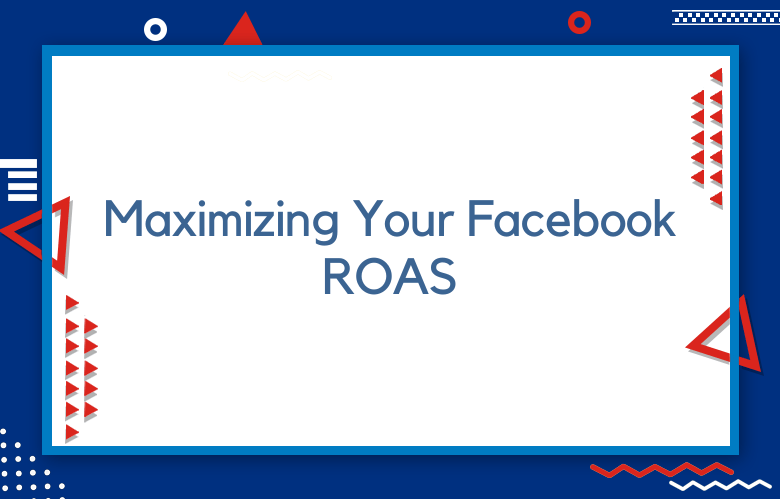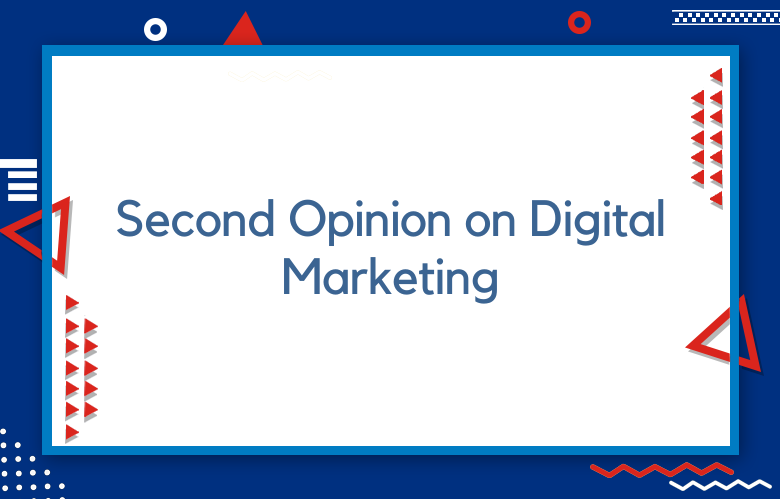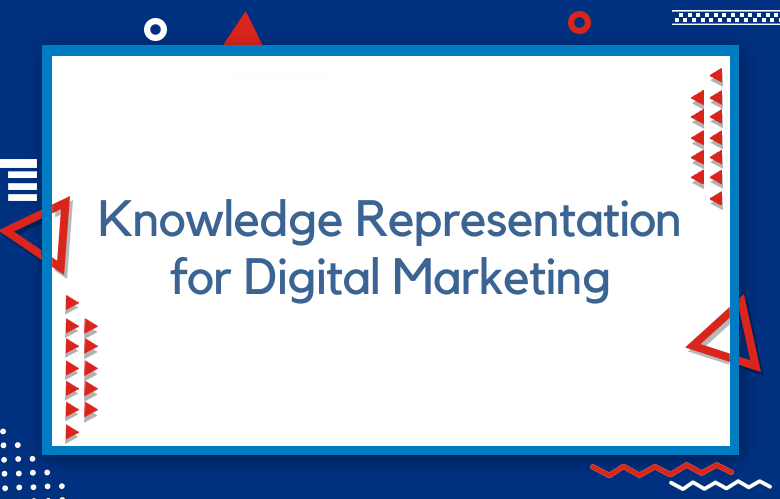Maximizing Your Facebook ROAS: Leveraging Event Match Quality (EMQ) Score

In the ever-evolving digital marketing landscape, Facebook remains a powerhouse for advertisers looking to maximize their return on ad spend (ROAS). A crucial yet often overlooked element in this endeavor is the Event Match Quality (EMQ) score.
Maximizing Your Facebook ROAS: Leveraging Event Match Quality (EMQ) Score
In the world of Facebook advertising, maximizing your return on ad spend (ROAS) is crucial for businesses looking to achieve better advertising results. One key metric that can help advertisers optimize their ad targeting and ultimately boost their ROAS is the Event Match Quality (EMQ) score.
The EMQ score measures the accuracy of matching user actions (events) to ad campaigns, providing valuable insights into ad delivery and targeting effectiveness. By leveraging the EMQ score, businesses can improve ad targeting, reach more relevant users, and achieve higher ROAS.
This comprehensive guide will delve into EMQ, its significance in enhancing your Facebook advertising campaigns, and actionable strategies to improve your EMQ score, ultimately leading to an increase in Facebook ROAS.
Understanding Event Match Quality (EMQ) Score
Event Match Quality (EMQ) Score is a metric used by Facebook’s Conversion API (CAPI) to measure the accuracy of matching events on a website to Facebook users.
This score is vital for advertisers using Facebook’s conversion tracking, targeting, and custom audience features, as it helps ensure these features work correctly.
The EMQ Score ranges from 0 to 1, with 1 being the highest possible score. It perfectly matches a website’s events and the corresponding Facebook users.
A lower score indicates issues with event matching, which could impact the effectiveness of conversion tracking, targeting, and custom audiences.
What is Facebook ROAS?
Facebook ROAS, short for “Return on Ad Spend,” is a metric that measures the effectiveness of your Facebook advertising campaigns.
It’s a ratio that shows the total revenue generated from your Facebook ads divided by the amount of money you spend on them.
ROAS is an essential metric for advertisers because it helps you understand how much return you’re getting on your investment in Facebook ads.
A high ROAS means that your ads generate more revenue than they cost you, which is a good sign that your advertising strategy works well.
A low ROAS, on the other hand, can indicate that your ads are not generating enough revenue and may need to be adjusted or optimized.
To calculate your Facebook ROAS, divide your total revenue from Facebook ads by your real ad spend.
For example, if you spend $1000 on Facebook ads and generate $2000 in revenue from those ads, your ROAS would be 2 (2000/1000 = 2).
Remembering that a good ROAS will vary depending on your business goals and industry is essential.
Here are some factors that can impact the EMQ Score:
- Data accuracy: Ensuring that the data collected through CAPI is accurate and up-to-date can help improve the EMQ Score.
- Data completeness: Providing complete and consistent data can also improve the EMQ Score. This includes using compatible data formats and capturing all relevant event data.
- Data freshness: Sending data to Facebook in real-time or near real-time can improve the EMQ Score, ensuring that the data is as up-to-date as possible.
- Data volume: Sending a sufficient volume of data can also improve the EMQ Score, as it provides Facebook with more data to work with when matching events to users.
- By optimizing these factors and improving the EMQ Score, advertisers can enhance the effectiveness of their Facebook campaigns and achieve better results.
- At its core, the Event Match Quality (EMQ) score is a metric Facebook uses to assess the quality and accuracy of data sent through the Facebook pixel or Conversions API.
- It reflects how well you match user data from your website actions to Facebook user profiles.
- A higher EMQ score means better data accuracy, which allows Facebook’s algorithms to optimize ad targeting, resulting in more effective ad campaigns and improved ROAS.
The Impact of EMQ Score on Facebook Advertising
A high EMQ score is instrumental in achieving efficient ad delivery and improved campaign performance on Facebook. It enables the platform’s algorithms to identify and target the most relevant audiences for your ads based on accurate event data.
This precise targeting enhances user experience by showing more relevant ads and boosts your campaign’s conversion rates, directly impacting your ROAS positively.
The Event Match Quality (EMQ) Score can significantly impact your Facebook advertising efforts.
As mentioned, the EMQ Score measures the accuracy of matching events on your website to Facebook users, which is crucial for effective conversion tracking, targeting, and custom audiences.
Here are some ways in which the EMQ Score can affect your Facebook advertising:
Conversion Tracking: A low EMQ Score can result in inaccurate conversion tracking, making it difficult to determine the effectiveness of your Facebook ads.
Targeting and Custom Audiences: A low EMQ Score can also affect the accuracy of targeting and custom audiences, as Facebook may not be able to match events on your website to the right Facebook users. This can lead to less effective targeting and lower conversion rates.
Ad Delivery and Optimization: Facebook’s ad delivery and optimization algorithms rely on accurate event data to decide which ads to show to which users. A low EMQ Score can negatively impact these algorithms, leading to less effective ad delivery and lower ROAS.
Cost-Effectiveness: A low EMQ Score can also affect the cost-effectiveness of your Facebook advertising. If Facebook cannot accurately match events on your website to the right users, you may be wasting ad spend on irrelevant audiences.
By optimizing your EMQ Score, you can improve the accuracy of conversion tracking, targeting, and ad delivery, ultimately leading to better advertising performance and higher ROAS on Facebook.
Strategies for Enhancing Your EMQ Score
Improving your EMQ score involves a combination of technical adjustments and strategic data handling. Here are several strategies to help you boost your EMQ score:
Optimize Pixel Implementation: Ensure your Facebook pixel is correctly implemented across your website. This includes proper placement on all relevant pages and accurate event-tracking configuration to capture meaningful user actions.
Leverage the Conversions API: Complement your pixel data with the Conversions API to send additional event data directly from your server. This method is less susceptible to browser restrictions and ad blockers, leading to more complete data collection.
Enhance Data Quality: Provide as much high-quality, detailed user data as possible with each event sent to Facebook. This includes email addresses, phone numbers, and other customer data that can help Facebook accurately match events to user profiles.
Utilize Customer Information Parameters (CIPs): When setting up events, use Customer Information Parameters to include additional user data, such as email or phone number. This helps improve the match rate between website actions and Facebook users.
Maintain Data Privacy Compliance: Ensure all data sent to Facebook comply with data protection regulations such as GDPR. Use the Limited Data Use (LDU) feature to manage how data is processed and respect user privacy settings.
Regularly Audit Your Setup: Review your Facebook pixel and Conversions API setup to identify and fix any issues. Use Facebook’s diagnostic tools to check for data discrepancies or errors in event tracking.
The Ultimate Facebook ROAS Hack: Unleashing the Power of Event Match Quality (EMQ) Score
The Event Match Quality (EMQ) Score is a powerful tool that can help businesses optimize their Facebook advertising campaigns and achieve greater return on ad spend (ROAS). By leveraging the EMQ Score, businesses can better understand the effectiveness of their ad targeting, improve the accuracy of their conversions, and ultimately drive better results from their Facebook campaigns.
The EMQ Score is a metric that measures the match quality between the events that Facebook tracks and the conversions that businesses are optimizing for. A higher EMQ Score indicates a more robust match between the events and conversions, which can lead to more accurate conversion reporting and more effective ad targeting.
EMQ Score Unleashed: Supercharging Your Facebook ROAS to its Maximum Potential
In the world of Facebook advertising, achieving a high Return on Ad Spend (ROAS) is crucial for businesses looking to maximize their advertising ROI. One powerful hack that can supercharge your Facebook ROAS is by focusing on the Event Match Quality (EMQ) score.
The EMQ score is a metric that measures the accuracy of your conversion events, such as purchases, leads, or other essential business actions. By improving your EMQ score, you can increase the effectiveness of your Facebook ads, resulting in higher ROAS.
Here are some strategies for maximizing your EMQ score and supercharging your Facebook ROAS:
Accurately configure your conversion events: Ensure that your conversion events are set up correctly and accurately reflect the actions you want to track.
Use server-side tracking: Implementing server-side monitoring can help improve the accuracy of your conversion events by reducing the reliance on browser-based cookies.
Monitor your EMQ score regularly: If your EMQ score starts to decline, take action to improve it.
Utilize custom audiences: Targeting custom audiences based on your conversion events can help improve the relevance of your ads and increase your EMQ score.
Optimize your ad creative: Test different ad creatives and messaging to see what resonates best with your target audience and drives higher conversion rates.
Focusing on your EMQ score and implementing these strategies can supercharge your Facebook ROAS and achieve better advertising results for your business.
Advanced Tips for Maximizing Facebook ROAS with High EMQ
Beyond improving your EMQ score, there are additional strategies to enhance your Facebook advertising efforts further:
Segment Your Audiences: Create well-defined audience segments based on user behavior, demographics, and interests. This allows for more targeted and personalized ad campaigns.
Test and Optimize Creative: Regularly, A/B tests different ad creatives, formats, and messages. Analyze performance data to identify what resonates best with your target audience and optimize accordingly.
Utilize Lookalike Audiences: Leverage Facebook’s Lookalike Audiences feature to reach new users who share characteristics with your best-performing customer segments, expanding your reach while maintaining relevancy.
Implement Dynamic Ads: Use Facebook’s Dynamic Ads to automatically show users the most relevant products or content based on past interactions with your website.
Monitor and Adjust Bidding Strategies: Monitor your campaign performance and adjust your bidding strategies as needed. Consider factors like campaign objectives, audience behavior, and market trends when setting bids.
Conclusion: A Holistic Approach to Boosting Facebook ROAS
Improving your Event Match Quality (EMQ) score is a fundamental step towards enhancing your Facebook ad campaigns and increasing your ROAS.
Ensuring accurate and comprehensive data matching enables more effective ad targeting and optimization.
Combine this with strategic audience segmentation, creative testing, and continuous performance monitoring for a holistic approach to Facebook advertising success.
Remember, in the dynamic world of digital marketing, ongoing optimization and adaptation are crucial to staying ahead and achieving your advertising goals.
Call: +91 9848321284
Email: [email protected]



